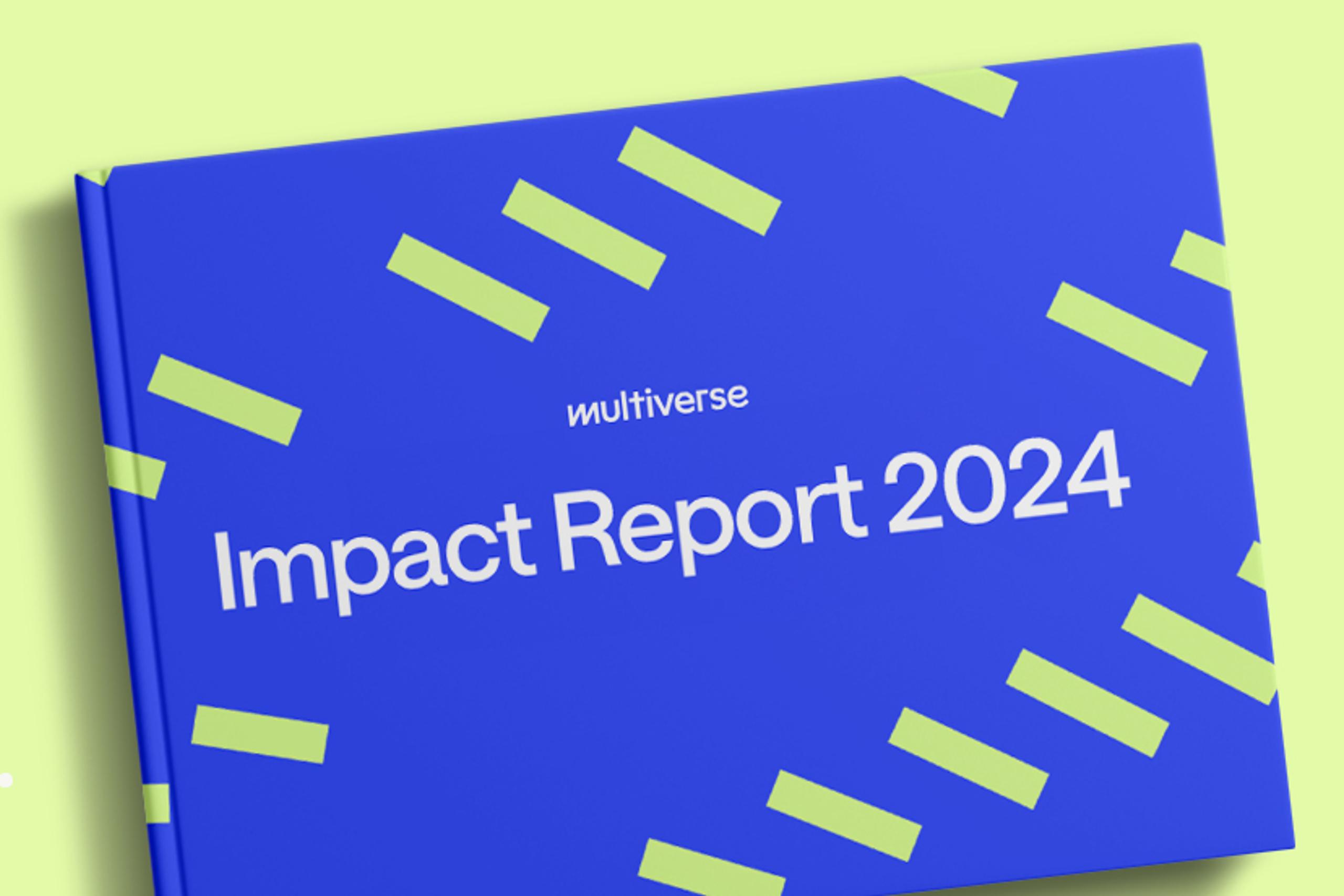Contents
The world of work is undergoing a profound shift driven by tech and AI, changing employee expectations, and a massive rethinking of where and how work gets done.
Amidst all these changes, Multiverse hosted author, Bloomberg columnist, and all-round future of work expert, Julia Hobsbawm, for a Q&A to celebrate the launch of her latest book -“Working Assumptions”. Jimmy McLoughlin, the podcast host and former advisor to the UK Prime Minister, hosted the discussion.
From the discussion, we’ve pulled out five of the most important trends that are shaping the future of work today.
1) It’s early days but AI is already augmenting the way we work
While there are fears about AI potentially replacing human workers, the current reality is that it's being used to augment and assist them in diverse areas from research and marketing, to medical diagnostics.
As Hobsbawm shared, "I use a tool called Perplexity daily. Sometimes I have questions where I need the facts at my fingertips, and the answer comes up very clearly. AI is everywhere - I also went to the eye hospital recently and they were using it for patient diagnostics.”
Hobsbawm also discussed how AI capabilities could help upskill and "level up" workers by taking over specific tasks and automating processes to allow more strategic work. But, there were open questions about whether AI could standardise work too much, depress wages for certain roles, or privilege some workers over others in accessing and leveraging these AI tools effectively.
This continues to underscore the importance of learning new skills, particularly for those in roles at risk of automation or those looking to enter the workforce. As AI improves and our ability to use it matures, it will become increasingly important to ensure everyone can take advantage of the opportunities it brings.

2. Continuous skills-based learning is the future
It’s clear that an iterative skill mindset is replacing the ‘one-and-done’ education paradigm.
As Hobsbawm said, "If I was starting over, I would think about constantly developing and evolving my skills. I certainly wouldn't tell someone, if you go to a certain university, or do an MBA, and you're sorted. That's over."
In this new world, we must adopt a mindset of lifelong learning. Whether that’s shifting our workspaces to provide opportunities and cultivate new skills or learning new technical capabilities and enhancing soft skills like communication. Individuals will need to continuously upskill throughout their careers, not just frontload knowledge through degrees or certifications acquired years ago. The shelf life of a static skill set is rapidly diminishing.

3. The importance of equitable reskilling
AI can help level the playing field, because the least skilled and least qualified tend to get better faster using AI. However, there is still a need to translate access to information into applicable skills among different ethnic, socioeconomic, and generational groups.
For example, Hobsbawm highlighted the paradox that although there has never been more equal access to information, those from privileged backgrounds are still better at knowing how to access and use it. Similarly, she said that “class is fantastically important” for shaping attitudes towards safety, security, and risk appetite when it comes to building and maintaining careers.
Networks and mentorship were called out as potential solutions to overcome systems of inequity. “If you put people in an equal space, and you give them time, and you show them interest, and you teach them curiosity, they will learn. They will have that competence. Nobody is inherently better or smarter.”
4. Gen Z represent a new generation of workers with different priorities (for now)
Compared to prior generations, younger generations like Gen Z have very different attitudes toward job security, career paths, and the types of work they find appealing, As Hobsbawm noted, "They want different things. They don't want the kinds of jobs with rigid hierarchies and linear paths. They want good, purposeful work, and they want flexibility. But the symbol of the fancy office building is no longer enough.”
This generational mindset shift is upending traditional office cultures centred on degrees, titles, and ladder-climbing. As a result, companies will need to rethink how they structure jobs, progression, amenities, and their employer branding to attract and retain this new generation.
However, Hobsbawm asked whether this would persist as Gen Z gets older. “What happens when this generation starts to have babies? Are their values going to shift? Are they going to want stability and mortgages? Or will they have swung to this solopreneur and freelancing mindset?”

5. Flexibility is now (almost) universal
The debate about remote work has been fought fiercely, but Hobsbawm was clear in her view that “fully remote doesn’t work, except for a minority of businesses.” However, the good news is that some degree of flexibility to work from home and the office is now offered “almost universally.”
While some remote-work advocates might want the 100% remote world, the shift to more flexible working patterns still marks a significant shift from the pre-pandemic norms. This is forcing a rethink around city economies, commuting patterns, and even home setups, as people want to spend more time living and working from the same place.
The most profound change in a century
"This is the biggest moment in 100 years” - said Hobsbawm. “Technologically, culturally, politically, generationally. We really haven't seen anything like this since Henry Ford brought in automation."
At Multiverse, we can’t predict the future, but we do know that by helping organisations equip their staff with the skills to take advantage of new technology they will be well-placed to navigate the ever-changing work of work, whatever comes their way.




